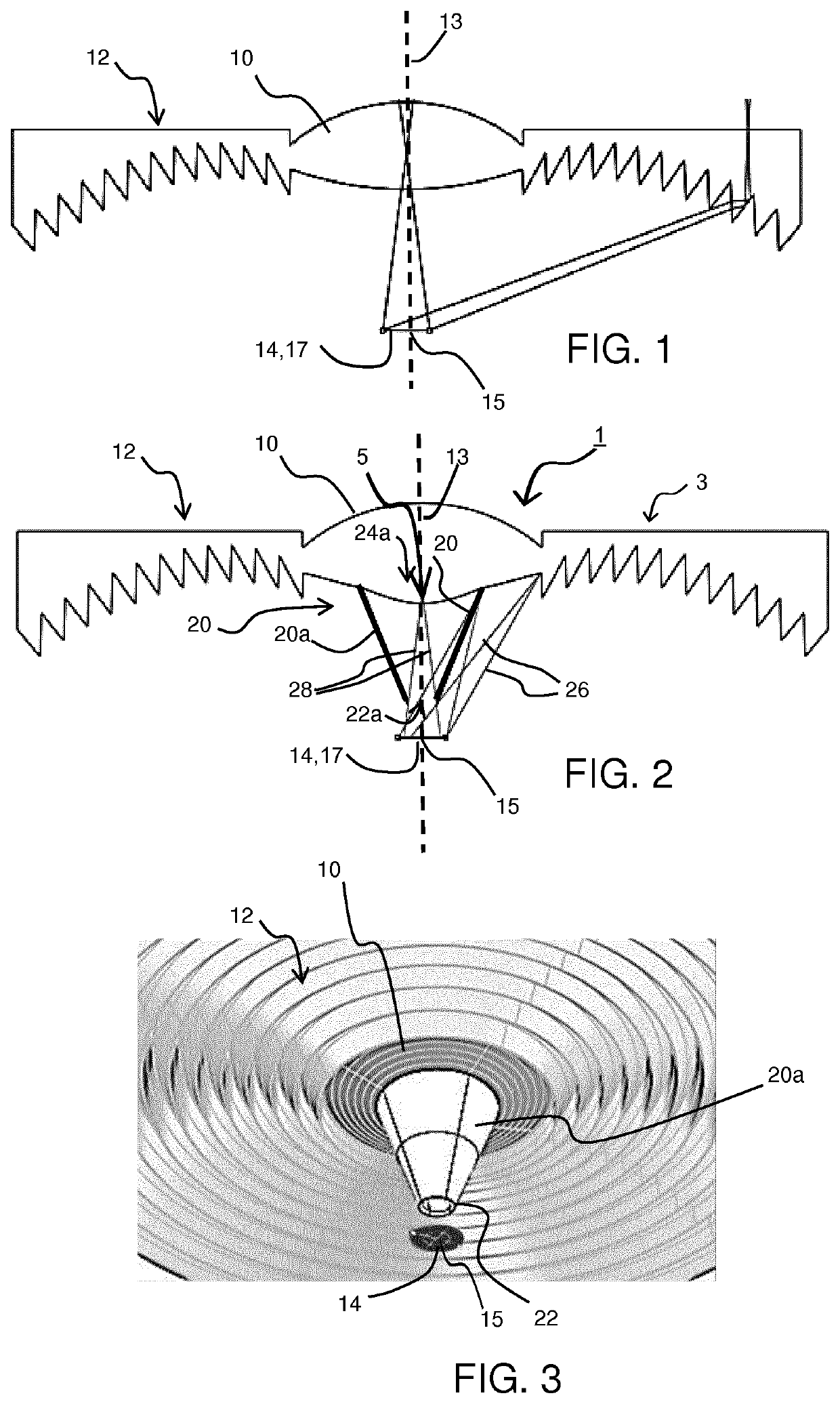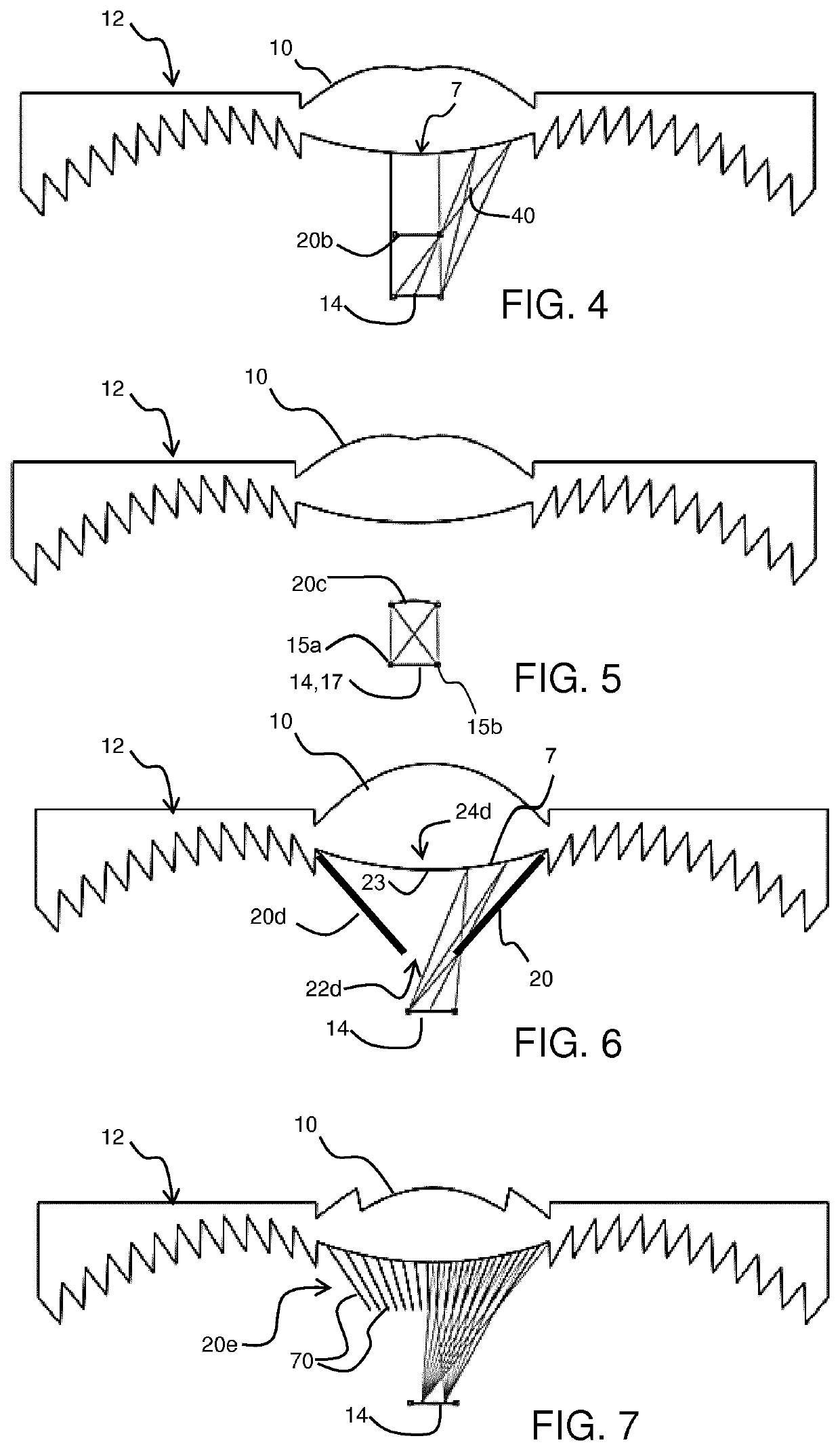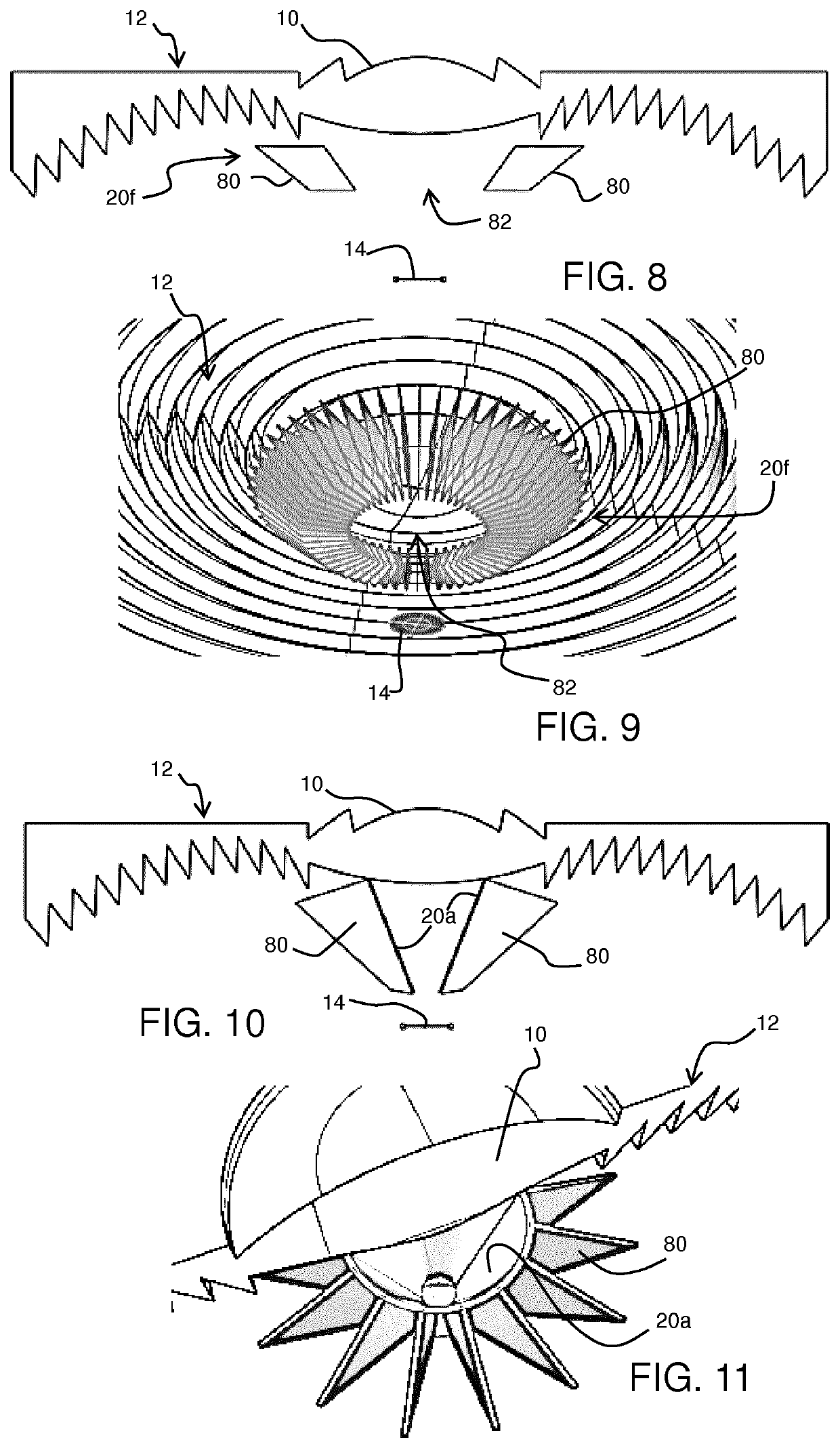Collimator and a lighting unit
a collimator and lighting technology, applied in the field of collimators, can solve the problems of inability to achieve the depth required by a single light source, inconvenient operation, and inability to remove light, so as to reduce the beam angle, reduce the effect of beam angle and large angl
- Summary
- Abstract
- Description
- Claims
- Application Information
AI Technical Summary
Benefits of technology
Problems solved by technology
Method used
Image
Examples
Embodiment Construction
[0056]The invention provides a collimator comprising a Fresnel lens having a focal point and comprising a refractive lens portion and a toothed total internal reflection portion. A light blocking element is at least between the lens portion and the light source provided in a light source position. A portion of a light source output is blocked from reaching at least one region of the inner lens portion. At some or all parts of the lens portion, light does not reach those parts from the full area of the light source. This partial light blocking means the whole shape of the light source is not projected onto all of the lens portion, and the halo effect is reduced or eliminated. This serves to reduce the etendue of the light source and reduces the beam angle of the center lens, its imaging characteristics, the yellow ring problem and glare issues.
[0057]The light blocking element can be reflective to recycle part of the light by sending light back to the source or it can be absorbing.
[00...
PUM
 Login to View More
Login to View More Abstract
Description
Claims
Application Information
 Login to View More
Login to View More - R&D
- Intellectual Property
- Life Sciences
- Materials
- Tech Scout
- Unparalleled Data Quality
- Higher Quality Content
- 60% Fewer Hallucinations
Browse by: Latest US Patents, China's latest patents, Technical Efficacy Thesaurus, Application Domain, Technology Topic, Popular Technical Reports.
© 2025 PatSnap. All rights reserved.Legal|Privacy policy|Modern Slavery Act Transparency Statement|Sitemap|About US| Contact US: help@patsnap.com



